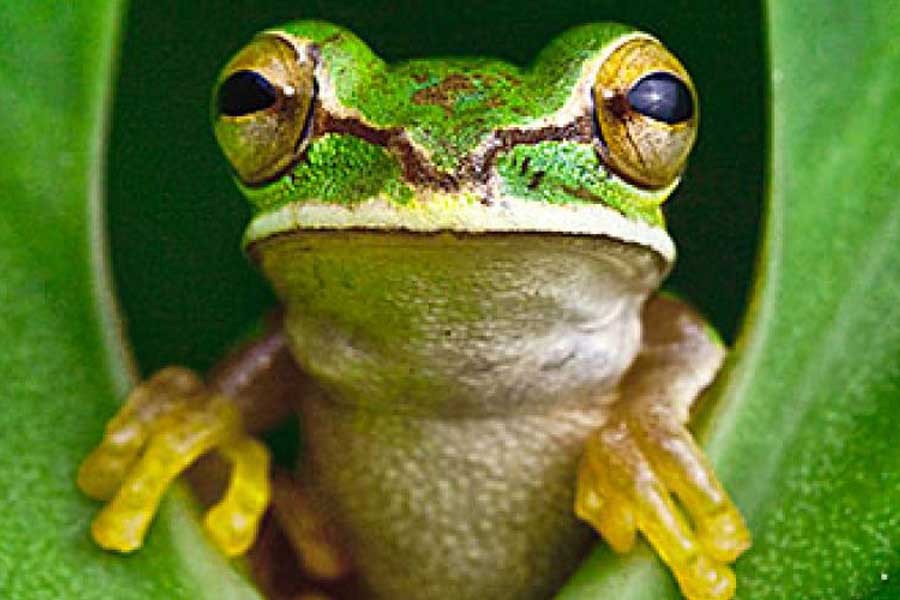The first global Assessment Report titled ‘The State of the World's Biodiversity for Food and Agriculture (2019)’ has been published recently by the United Nation's Food and Agriculture Organisation (FAO) Commission on Genetic Resources for Food and Agriculture. The report, among others, highlights that 'many key components of biodiversity for food and agriculture at genetic, species and ecosystem levels are in decline'.
Biodiversity has been playing significant roles in human wellbeing and for its economic prosperity. Biodiversity not only ensures our food, water, medicine, shelters and clothes supply, but also keeps our air breathable thus making our environment beautiful. Although the world is now producing more food than in the past, it is relying on over-expanding monocultures. Scientists found that two-thirds of the world's crop production comes from only nine (sugar cane, maize, rice, wheat, potatoes, soya beans, oil palm fruit, sugar beet and cassava) cultivated species of agricultural products. On the other hand, approximately 6000 other cultivated plant species are declining. The wild food sources are becoming rare and now they are difficult to find. Fewer crop species are feeding the world compared with 50 years ago.
Scientists found evidences that food quality for human consumption have been deteriorating. Mr. Colin Khoury, a scientist from the Colombia-based International Center for Tropical Agriculture, observes that "Over the past 50 years, we are seeing that diets around the world are changing and they are becoming more similar - what we call the 'globalised diet'," He further said that "This diet is composed of big, major crops such as wheat, rice, potatoes and sugar".
Over-reliance on a narrow range of crops caused starvation in history, such as the famine caused by 'potato blight' in Ireland in the 1840s and cereal crop failures in the US in the 20th century. The reliance on a small number of species may cause crop failures due to drought, disease outbreaks, increased natural calamities due to climate change. 'The Guardian' reports (February 21, 2019) that the agriculture firms, factories, urbanisation have been swallowing lands in one hand and have been polluting the environment with chemicals and other harmful materials on the other. FAO report reveals that the plants, animals and macro-organisms, support of which is crucial for upholding the human diet, are not being protected. To improve the resilience of the global food system to future shocks, an expansion in the diversity of the globally important crops is needed.
The FAO report analysing data of 91 countries of the world alerts that over the last two decades, approximately 20 per cent of the earth's vegetated surface has become less productive. Many species that are indirectly involved in food productions for human are less abandoned than in the past. The scientist involved in preparing the FAO report found that the hundreds of insects species which help pollinate crops, birds that eat pests, fish which maintain oceans' natural food chains are in decline. Over exploitation of crop-producing lands results in destroying the plants, animals and micro-organisms which help sustain the growth of our useful crops. Due to the loss of biodiversity world's food supply is now under 'severe threat'.
The biodiversity decline has direct links with a number of global trends including climate change, international markets and demographic growth. With the above mentioned global trends, challenges are rising in land use changes, pollution, overuse of natural resource and overharvesting and proliferation of invasive species. The resulting impacts are catastrophic on the environment and biodiversity.
There are obvious relationships between human existence and the biodiversity in the ecosystem we live in. At the same time, the knowledge mankind has accumulated fails to fully understand and explain the complex relationships of biodiversity and its contribution in our life and livelihood. Unfortunately, with the rapid growth of human population in our planet a large number of mammals, birds, fish and reptile population and plant species has been destroyed over the past half century. The growing demand for food has led the mankind to rapidly develop various technologies for the growth of food production capacity. At the same time, the world's capacity development for growing more food has undermined the needs for protecting biodiversity. Irish President Michael Higgins while speaking at the National Biodiversity Conference in Dublin in February 2019 informed that 'over the past half century, humanity has witnessed the destruction of 60% of mammal, bird, fish and reptile populations around the world'. He called on the world to do more to tackle the 'extinction crisis' as the alarming information and knowledge about the state of biodiversity has burdened us with a huge responsibility. Julie Belanger, one of the editors and coordinator for publishing the FAO report, suggests that 'there is an urgent need to change the way food is produced and ensure that biodiversity is not something that is swept aside but is treated as an irreplaceable resource and a key part of management strategies.'
Mushfiqur Rahman is a mining engineer, who writes on energy and environment issues.


